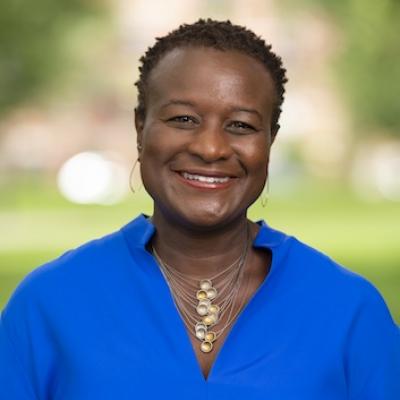The Educative Power of Sociology
The goal is to encourage an examination of the discipline’s reach and power in myriad spheres of society. Sociology’s educative power exists within its ability to convey knowledge and research critically, and to even offer solutions and interventions to social problems, from classrooms to boardrooms, individuals and families to communities, institutions to nation-states, and social movements to social change and justice.
Today the United States and other parts of the world are experiencing a regressive turning point. Arguably, it reflects a “tipping point” where those who have been historically denied opportunities to full humanity, citizenship, and access to societal resources have advanced relatively slowly since the mid-twentieth century. Sociological theory and discourses have pushed society beyond bankrupt, culturally deficit, colorblind, and individualistic talk to discussions of the adverse effects of white supremacy, class exploitation, structural inequalities, and neoliberalism. Recently, however, that advancement has hit a wall. Meanwhile, within academia and sociology, epistemic and methodological debates persist. Social scientists across the disciplinary spectrum wrestle forcefully with the directions of their departments and fields of expertise.
The backlash and pushback are great. Full participation in the polity and voting rights are under assault. State legislatures have also outlawed explicit teaching of the nation’s history, about race and racism, anti-Semitism, and explicit references to certain books and ideas that highlight the racial hierarchy at the core of U.S. society and beyond. The highest court in the United States shows signs of overruling a legal precedent laid by its own predecessors and has acquiesced to a state’s demand to limit women’s reproductive rights. Competitiveness and fear of encroachment on individual choice motivate communities to reproduce thick social boundaries and segregation and to limit the sharing of resources and power significantly with historically underrepresented groups in access to departments, colleges, and universities.
Paradoxically, while the “opening” of opportunity structures has enabled both epistemic and social diversity across time, many historical beneficiaries of power and resources now experience group threat, anxiety, and fear and find themselves in perceived crises. The conflicts of increased status differentiation bear witness to the limits of representation without the depth of structural and organizational change.
For the 2023 ASA Annual Meeting, which will be held August 18-22 in Philadelphia, Pennsylvania, President-elect Carter invites myriad practice communities of sociologists to engage in innovative and imaginative discussions that take us beyond the extant (and limited) nature of research evidence to conceptualize, simulate, and debate models of deeper social advancement in organizations, institutions, and society.
The proposed theme of “The Educative Power of Sociology” invites new scholarship, research studies, and policy frameworks that aim to:
1) focus on the use and utility of sociological thought and research in institutions, organizations, and society. Starting from the contributions already made, how can sociology expand its relevance to multiple “publics”? How can sociology broaden its influence and reach in the teaching, learning, and socialization of early and adult learners, from pre-K to higher education to the workplace, communities, and families? Further, how can sociologists expand further how they address and engage at the intersections of research, policy, and practice?
2) disrupt the academic hierarchy of social science. Sociology has much to teach and co-construct with other disciplines about the means of societal change and advancement. How can sociology use its scholarly power and educational potential to flatten that hierarchy and evince the power of both sociology and interdisciplinary practice with other social sciences?
3) expand and connect more intentionally with global sociologies. With the relatively increased permeability of national boundaries, how might U.S.-based sociology engage with and center the knowledge and research of sociologists around the world and from other societies more? To better differentiate between universal and particular social dynamics and processes, how can American sociology amplify the discipline as a global social science?
4) engage in reflexivity and conduct a sociology of sociology: to what extent do professional communities of sociologists reproduce and mirror similar social dynamics akin to those we study and problematize in society—white supremacy, patriarchy, class exploitation and inequality, status hierarchies, power, stratification, unfair distribution of resources, and discrimination and segregation and exclusion through epistemic and organizational practices? Diversity of people, epistemic frameworks, ideas, and methods is the intellectual strength of sociology. Should and can the discipline itself mirror the progressive elements that many sociologists call for in our research for a fairer, just society?
In 2023 in Philadelphia—the cradle of U.S. democracy and known as the “City of Brotherly (and Sisterly) Love,” let us marshal our collective knowledge and reflect on the lessons of how sociological knowledge not only enlightens but also urges us as professional and practice communities to move toward bolder, transformative, and useful directions for social progress. Let us reflect and act on the discipline’s educative power.
Prudence L. Carter
ASA President and Chair, 2023 Program Committee
Brown University
Each Program Committee plans one Annual Meeting. The committee is constituted in August two years in advance of the meeting for which it is responsible, and is charged with developing a program of invited sessions that will service the diverse discipline of sociology, enhance the meeting theme chosen by the President-Elect, and broaden participation by sociologists in the United States and around the world.
Members of the 2023 Program Committee
Prudence Carter, President and Chair, Brown University
Mignon Moore, Vice President, Barnard College
Monica McDermott, Secretary-Treasurer, Arizona State University
Andy Andrews, University of North Carolina, Chapel Hill
Bailey Brown, Spelman College
Cynthia Feliciano, Washington University St. Louis
Neda Maghbouleh, University of Toronto
Roslyn Mickelson, University of North Carolina, Charlotte
Ellis Monk, Harvard University
Dina Okamoto, Indiana University, Bloomington
Michael Rodriguez-Muñiz, Northwestern University
Rebecca Romo, Santa Monica College
David Takeuchi, University of Washington
Source: https://www.asanet.org/annual-meeting/2023-annual-meeting/theme-2/

